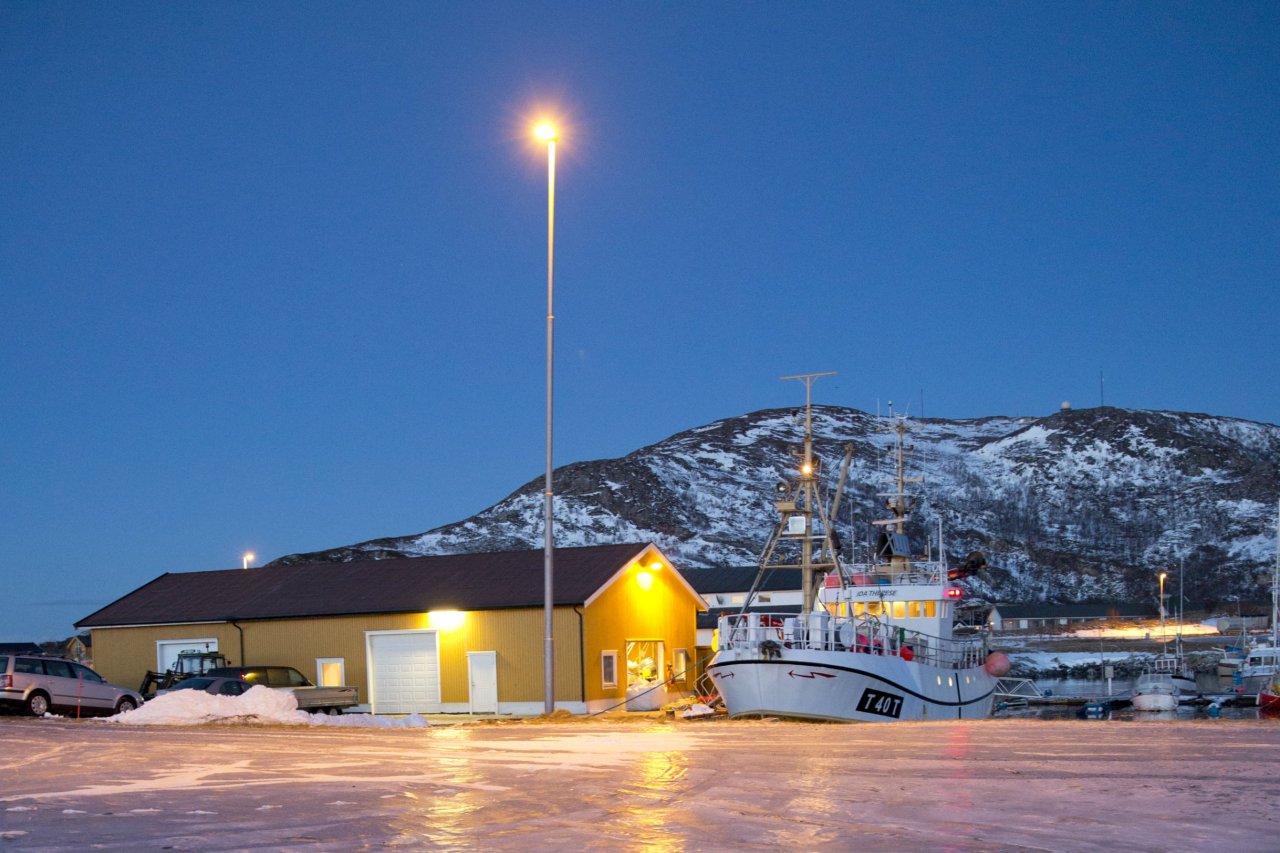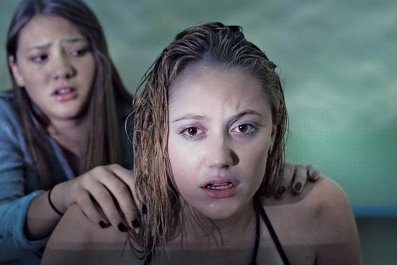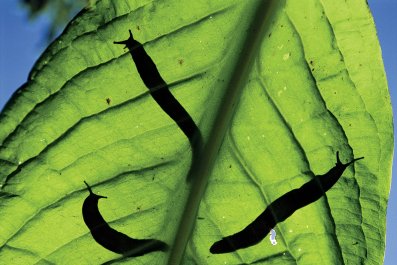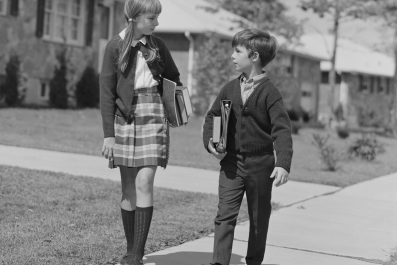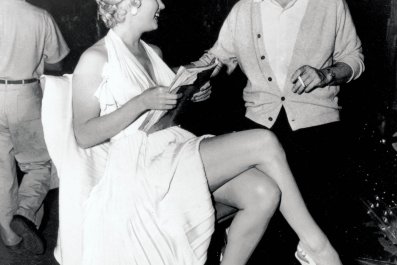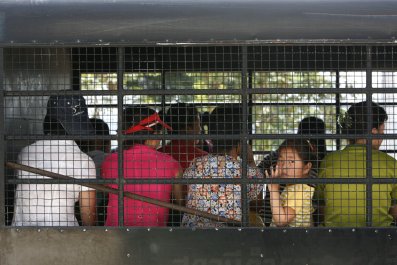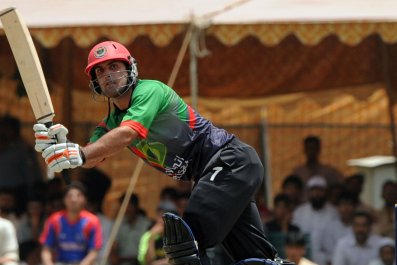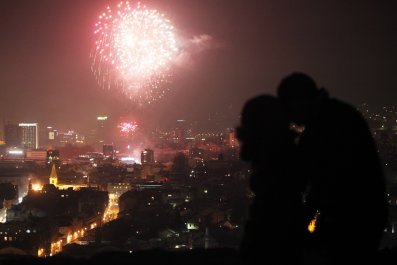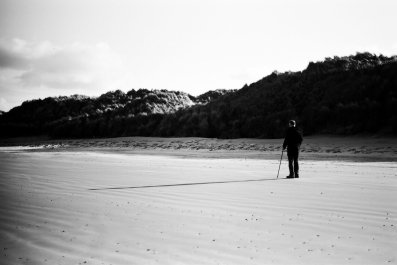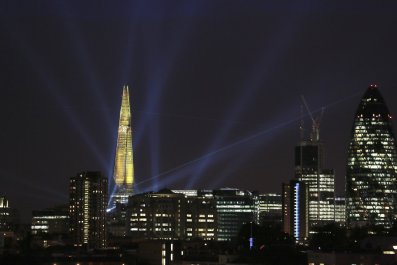Last week, for the first time in 59 days, the sun rose over Europe's northernmost city. The official end of the morketiden – the murky time – means a party: "A lot of people put on yellow clothes, and have a drink or two. The children eat sunbuns – doughnuts with a custard centre," I am told. Festivals and feasts to celebrate Soldagen – sun day – go back to the Bronze Age. It's always been a relief to see the sun again. But, apart from one teenage Goth-satanist, everyone I met insisted they loved the winter.
I loved it, too. My days on Sommaroy, "Summer Island", an hour west of Tromsø city in Norway, were washed in blues, pinks and indigos. At midday, a gleam of copper and gold on the horizon showed where the sun was biding its time. It was icy, still and clear. Lit by the snow-glow, the mountains were veined marble, rendered in high definition. Even when it got dark, at about 3pm, it wasn't black. Rather, we swapped the luminous twilight for a deep blue velvet sparkling with stars and the occasional green skidmark of the Northern Lights.
The weather in Troms province, is not often so benign. But it was far lovelier than the average January day in Edinburgh, where I live. "It's a great time," says Stine Ivesen, a businesswoman. "In December it can be pretty dark. But once the snow arrives, there's lots of reflected light. I love to cross-county ski so I get lots of exercise, and when we're indoors, we make sure it's cosy and full of log fires and candles. That's important: you can love winter if you embrace it."
"Don't people get depressed?" I ask. They certainly do in Scotland. "What about Seasonal Affective Disorder, whose symptoms include low mood, sleep-addiction and a lack of interest in life? What about Ibsen, the playwright whose portraits of soul-wringing, neurosis-laden northerners gave us our favourite stereotype of Scandinavians?"
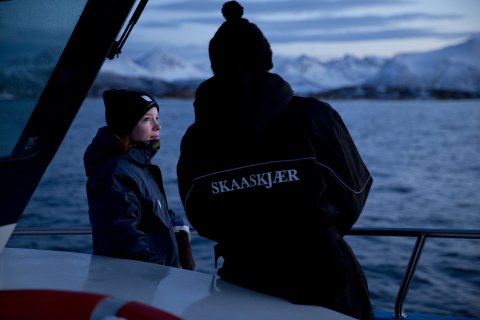
"I think that some newer people might get sad," says Kristjon Bergmundsson, originally from Iceland. We were motoring out into the glass-calm fjord to put lines down for cod. "And lots of the fishermen make sure they get some winter sun – the Canaries or Thailand. But I'm genetically adapted to tolerate the dark."
There may be something in that. For all the stereotypes, Norway and Sweden's suicide rates are close to European averages, and lower than Britain's, studies of communities in the far North generally find fewer cases of SAD – the syndrome that tends to hit people between January and March – than in normal urban populations. Fewer antidepressants are prescribed per person in Norway and Finland than in UK (though the highest use of antidepressants in the whole of Europe is in Iceland).
Some of the people I met in the north did complain. Not about depression, but about interruption to normal sleep. This is a well-known phenomenon when the nights get longer: in the 1970s academics speculated that sleep disruption during the morketiden might be associated with "radiation from outer space", or the magnetic distortions that cause the Northern Lights.
But now, there is a cure that satisfies most people: "When I use the light box for 20 minutes during the day, I sleep like a baby that night," saya nurse Unni Lorentzen. Many workplaces and Tromsø University are equipped with these gadgets: a box with full-spectrum bulbs powerful enough mimic sunlight. Forty-five minutes in front of a multiple light source emitting at least 10,000 lux is prescribed. Using single "daylight" bulbs is not enough.
Mimicking sunlight doesn't work for everyone. Alex Livingstone, a hydropower businessman who lives in rural Scotland tells me. "Light boxes don't work, 12 sessions of CBT (cognitive behavioural therapy) might. They mainly gave me a headache and a vague sense of agitation without any real energy. But then, by the end of February in Scotland, you couldn't recognise happiness if it bit you on the nose."
There are other solutions. Our fishing trip produces a box full of vast cod – not just any cod, but skrei, the "wandering cod" that, lean and muscular, are a wintertime treat in northern Norway. They come up on the fishing line nearly as long as my leg. (These aren't the only giants around – there are humpback whales just a few boat lengths away, fishing just as intently.) The skrei is cooked and served up to us in a traditional Norwegian fashion – boiled. Slices of snowy white skrei flesh lay on the plate alongside boiled skrei roe (eggs) and boiled potatoes. This is cheered up with a sauce of skrei liver, nuggets swimming in the cod's own oil.
This is delicious – even to someone who gagged at cod liver oil doses as a child. It is also a key to another way of dealing with the darkness: diet. Most of us who live in the North eat nothing like as much fish as our ancestors did – for many communities in Europe it was the main source of protein until the 20th century. Fish contains the amino acid tryptophan and a lack of it is blamed for under-production of the hormone serotonin – and that in turn is connected to lethargy, aggression and depression. Trials have shown tryptophan supplements to be amazingly useful for helping 10-year-old boys with a tendency to be quarrelsome.
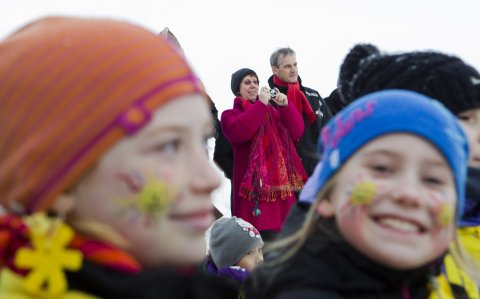
Most interesting of all are the problems associated with shortages of Vitamin D, which the body naturally makes when it absorbs the ultraviolet rays in sunlight. That process is so important to good health that children whose parents over-use sunscreen have been found to be severely deficient in Vitamin D, to the extent of developing the wasting disease rickets. For those, like the far northerners, who cannot make Vitamin D naturally, a key alternative source is oily fish – and most of the Tromsø people I meet do take cod liver oil or Vitamin D supplements in winter.
The importance of Vitamin D in children's growth has been known for decades. It is habitually added to milk in Denmark, the US, parts of France and Canada. Scotland's unexplained high rates of multiple sclerosis are one issue that has been linked to low Vitamin D, because people born in late winter are more likely to develop MS. New research suggests that lack of Vitamin D may have a role in autoimmune diseases, asthma and also nervous system disorders including autism, Parkinsonism and dementia. Some academics now believe that growing up with less than an optimum amount of sunlight may be a cause of schizophrenia.
The return of rickets – a disease associated with Dickensian poverty – has shocked the British medical establishment. There is a growing campaign to put it back into the diet; the retailer Marks & Spencer now adds it to milk, though in amounts that are probably not significant. Oliver Gillie, a writer and scientist, believes the UK should fortify all milk and cereals with Vitamin D. He says that in winter 90% of adults have lower levels of it than they should – even in summer the figure is 60%. "A great advance could be made by providing all pregnant women and babies with higher dose Vitamin D supplements. And a programme reaching 80-90% of people, as modern vaccinations do, could greatly reduce, if not eradicate MS, depression, type 1 diabetes and several autoimmune diseases. I think we must do it."
So the recipe for getting through the dark times, is to swallow the vitamins, eat oily fish, turn up the lights and – perhaps most important – make winter a pleasure. A friend who has just moved to Denmark after 20 years in sunny East Africa is impressed by Danish devotion to wintertime hygge – a word that means being cosy, happy and convivial. Norwegians have a similar concept, Scots, tellingly, do not. "You create an atmosphere – candles on the window sill, tables, everywhere. Log fires, wine with friends, homemade food, board games with the children. That's how the Danes get through the long winter nights. There are worse ideas than getting as comfortable as you can."



